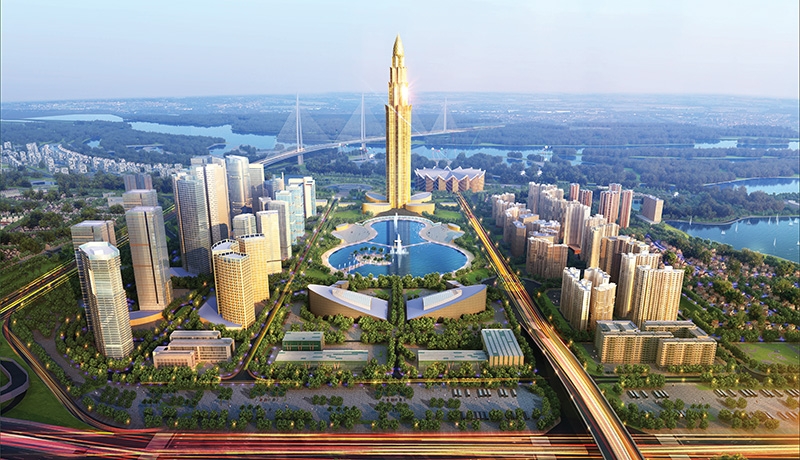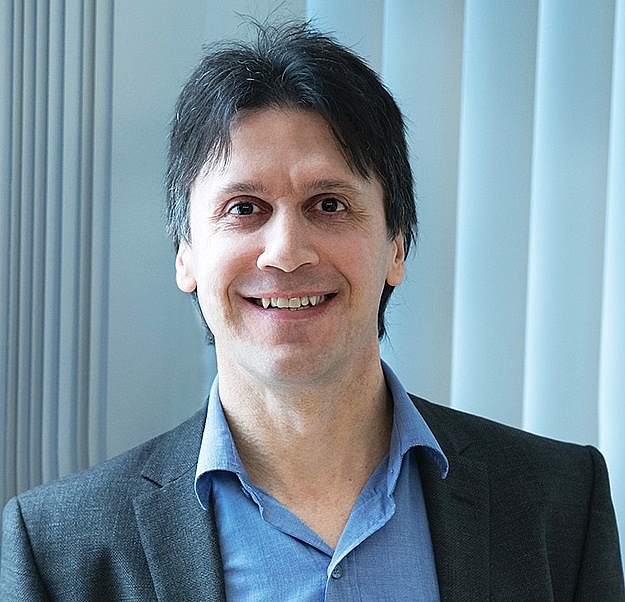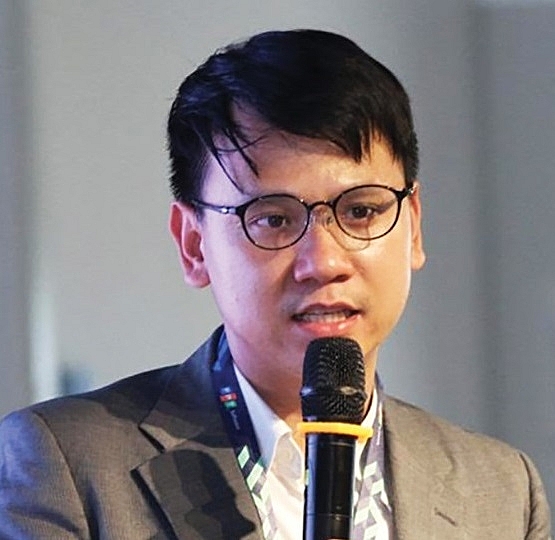Vietnam pushes on with smart city plans
2020/09/29
Vietnam is accelerating construction to support establishment of smart city projects combined with top-class technology to enhance both the country’s management and the economy.

The largest smart city in Hanoi is a venture invested in by BRG and Sumitomo in the north of the city
Smart cities are being built in many locations across the country, in particular Hanoi, Ho Chi Minh City, Danang, Binh Duong, and Nha Trang.
The biggest project so far is the Smart City project in the north of Hanoi, developed by BRG Group in a joint venture with Sumitomo Group from Japan. With investment capital of more than $4.1 billion, the 272-hectare smart city will offer future residents full benefits stemming from the synchronous development of modern and sustainable infrastructure and socioeconomic development.
Together with community-oriented facilities, the project will also compile a detailed plan on the application of smart technologies such as 5G, facial recognition, and blockchain, which will contribute to improvements in services in the capital.
The Smart City project by BRG-Sumitomo held its groundbreaking ceremony last October and is being divided into five phases. The project is currently in its first phase, over a 73ha land plot with investment of VND12.9 trillion ($560 million). The entire project is expected to be completed in 2028.
The second-largest venture in Hanoi belongs to Tan Hoang Minh Group, with Xuan Mai Smart City located in Chuong My district. With the investment capital of $3.5 billion and being built over 3,000ha, Xuan Mai Smart City will become a modern smart city composed with environmentally-friendly facilities.
Tan Hoang Minh Group announced that it would apply new solutions on AI, IT, and green re-use technologies into the management of the project. Last year, the group signed an MoU with a range of sub-investors to co-develop the project, including Sein I&D Vietnam, The Korea Water Resources Corporation, Seoul Housing and Communities Corporation, and Korea Overseas Infrastructure and Urban Development.
Meanwhile Vingroup launched its Vinhomes Smart City last year in the capital’s South Tu Liem district. The venture will follow the models of successful smart urban areas such as those found in Singapore, Songdo of South Korea, and Fujisawa in Japan. The project consists of 58 high-rise residential buildings based on the four key pillars of smart security, smart management, smart community, and smart home.
Vingroup plans to hand over the first building, Sapphire 1, next month, with the following three buildings hoped to be handed over next year.
Slower progress has been made in parts of Ho Chi Minh City, meanwhile. Despite $900 million being pumped into an eco-smart city by Lotte Group, three years have gone by without new work being carried out due in part to the auction process.
While a representative from Lotte Asset Development – Lotte Group’s arm in charge of the project – declined to comment on the situation, a source from Ho Chi Minh City said that the green light has in fact been given for continuation of the venture.
In a recent meeting with the prime minister, Chairman of Ho Chi Minh City People’s Committee Nguyen Thanh Phong said that the committee is keeping its promise to allow the Lotte consortium to be appointed as the investor of the project without any proceeding auction. Approval is soon expected by the city committee in order to support efforts of the foreign investors so far.
Located in the heart of the New Thu Thiem Urban Development Area, Lotte’s eco-smart city will apply IT solutions in management, and provide more than 12,000 units to the market upon completion.
Ho Chi Minh City People’s Committee is also proposing to set up a new city, provisionally called Thu Duc City. By combining districts 2, 9, and Thu Duc, the initiative expects to set up a smarter and high-tech location that can attract both international and domestic investment into the area.
However, many issues have still to be ironed out before official decisions and further progress can be made. With the concept of “a city in a city” for Vietnam, a synchronised master plan and correct financial resources are vital for the scheme to succeed.
Elsewhere, in the central city of Quy Nhon in Binh Dinh province, FPT Corporation is setting up an AI centre in order to prepare human resources for a smart city in the province at a later date.
The AI centre in Quy Nhon will create a technology hub for the central province and beyond. It will be a magnet to attract not only foreign and domestic experts into the area but also attract an investment wave from startups, investment funds, and other financial institutions into Quy Nhon.
Denis Brunetti - President for Vietnam, Myanmar, Cambodia, and Laos, Ericsson

Across ASEAN over past decades, the old economy was driven by traditional inputs such as low cost land, labour, and natural resources. However, in the new economy, the inputs that drive also create the next wave of investment and associated socioeconomic growth will be science, technology, and innovation.
In this new economy, the underlying enabler is digital infrastructure as much as the physical infrastructure. Digital infrastructure comprises secure, smart, scalable, and superior performing 5G networks. Indeed, 5G networks have become the critical national infrastructure that underpins and enables socioeconomic growth through the digital connectivity it provides people and industries, such as manufacturing, transport, healthcare, energy, and more besides.
All industries become more efficient and productive through digital connectivity provided by 5G, and this is the foundation of smart cities. Through the widespread availability of 5G network coverage across Vietnam from 2021, Ericsson believes that Vietnam will continue to become the destination of choice for most companies around the world that seek investment opportunities in ASEAN.
Coupled with its educated and dynamic workforce, political stability, and growing middle class, Vietnam’s strategic decision to target high-tech foreign investment clearly provides a significant and compelling platform for continued growth.
Phong Nguyen - Chief AI Officer, FPT Software

We are currently living in a 4.0 society where people and devices are connected to each other through the internet, generating huge datasets that can be leveraged to help a city become smarter. For instance, smart cities enable the Internet of Things devices to fetch data from various locations and allocate energy in a more efficient way.
They could also utilise technology solutions to provide citizens with more relevant healthcare services. Via home monitoring devices, patients could be treated and advised remotely by doctors. In mobility, transport services powered by artificial intelligence become more efficient and convenient with a range of applications such as smart traffic lights, autonomous vehicles and ride-hailing services.
A smart city is where its facilities and infrastructure system are digitalised and connected to each other, enabling different types of smart applications. We can use AI, big data, and Data Sciences to make our life easier so people could focus more on their well-beings. That is our vision about the future of smart cities.
At FPT, we have projects and technology solutions directly involved in smart cities such as the Internet of Things, 5G, embedded devices, Data Analytics, and AI.
David Jackson - CEO, Colliers International Vietnam

As urban populations grow, so do the issues of urban living from lack of resources, over-population, and social and economic imbalance.
A smart city is an urban area that uses different technologies to collect data. The insights from the data are then used to manage assets, resources, and services efficiently.
Smart cities being created through AI and the Internet of Things can assist in tackling these issues. New smart cities are designed for optimal use of space and resources and improve the overall experience of life.
According to the Smart City Index, one of the best methods to determine whether a smart city is actually smart enough is to examine its transport and mobility parameters. Smart transport and computer-controlled mobility services are the key to reducing the number of vehicles on the road and, as a result, creating less pollution and resource burdens.
Smart city development is crucial in developing countries like Vietnam. Increasing electronic government development will go a long way to promote and improve processes and reduce corruption.
With good government strategies and planning development, lessons can be learned from other cities. Vietnam has 97 million people; to effectively improve their lives, monitoring and improving efficiencies can help Vietnam improve its output and quality of life. VIR
Bich Ngoc
Source: https://vietnamnet.vn/en/sci-tech-environment/vietnam-pushes-on-with-smart-city-plans-676938.html
